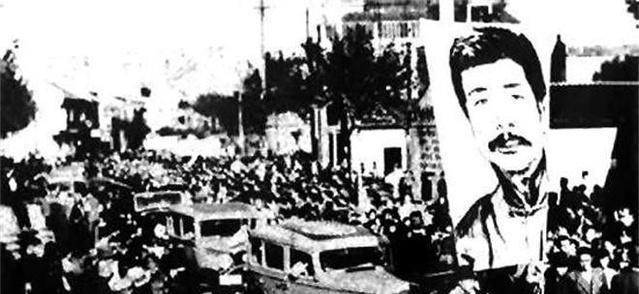In the cultural circle of the Republic of China period, the most famous should be Mr. Lu Xun. Lin Yutang once compared Lu Xun to a "white elephant", believing that Lu Xun's talent was as rare as a "white elephant", and was a rare literary wizard for hundreds of years. Lin Yutang's evaluation of Lu Xun can be said to be not exaggerated at all, and to this day people still love Lu Xun's articles and include his articles in textbooks.

At 5:25 a.m. on October 19, 1936, Mr. Lu Xun, a master of literature of a generation, died of illness in Shanghai at the age of 55. His death was a great loss to the literary world, and there was no great warrior left in the literary world. In January of that year, Lu Xun's physical condition was not very optimistic, and his shoulders and ribs were in severe pain, but he still insisted on translating Gogol's "Dead Souls". There have been many opinions about the cause of Lu Xun's death, and many people even believe that Lu Xun was deliberately misdiagnosed by his personal doctor Sudo. However, no convincing evidence has been found for this claim at present, it is only a guess.
The most common theory is that Mr. Lu Xun suffered from tuberculosis and was accompanied by severe emphysema, which eventually promoted pneumothorax and caused sudden death. This statement is the most convincing one at present. As we all know, Lu Xun's life can be said to be a cigarette without leaving his hand, and many of the photos of Lu Xun that people see now are images of cigarettes in their hands. Long-term smoking is very harmful to the body, especially for old smokers like Lu Xun, who have decades of smoking age, and their lungs may have been damaged by cigarettes. Therefore, Lu Xun's death should have something to do with his long-term smoking.
After the death of Mr. Lu Xun, the Funeral Committee was led by Song Qingling, Cai Yuanpei and others, and the members of this committee were all well-known personalities at that time, such as Shen Junru, Li Gongpu and others. The reason why the funeral committee was established was because at that time, people in the literary and art circles wanted to hold a solemn funeral for Mr. Lu Xun, and more than tens of thousands of people from all walks of life in Shanghai participated in the funeral. Such a huge scale, if there is no overall planning, it is easy to get out of control.
Lu Xun's cemetery was selected at the Wanguo Cemetery in Hongqiao, which is about ten miles away from the funeral home to the cemetery. Although the distance was long, the funeral procession did not take a car, and all those who attended the funeral were on foot. At the forefront of the line was Mr. Lu Xun's coffin, which was covered with a banner that read "National Soul", followed by Cai Yuanpei, Song Qingling, Li Gongpu and others, followed by people from all walks of life in Shanghai. Because the distance from the funeral home to the cemetery was too far, there were as many as 16 people carrying coffins in Lu Xun's coffin, all of whom were not simple, and they were all literary giants at that time.
The people who came to carry the coffin for Lu Xun were all literary bigwigs at that time, namely Zhang Tianyi, Wu Langxi, Xiao Qian, Nie Cyan, Ouyang Shan, Zhou Wen, Cao Bai, Xiao Jun, Ba Jin, Hu Feng, Chen Baichen, Huang Yuan, Lu Diqian, Li Liewen, Meng Shihuan, and Jin Yi, a total of 16 people. In this long list, many people may see Barkin at a glance, because Barkin is also one of the most well-known writers today. In fact, the other 15 people are also literary celebrities during the Republic of China period.
For example, Chen Baichen, many people may not have heard of his name now, in fact, he is a very famous playwright, known as "China's Gogol", and he also served as the head of the Chinese Department of Nanjing University. Other coffin carryers are the same, although now the reputation is not obvious, but at that time they were all celebrities in the circle, and all of them can be called great literary heroes. Moreover, among Lu Xun's coffin bearers, there was also a Japanese deer.
Lu Di was a progressive Japanese writer and a close friend of Lu Xun. He graduated from Tokyo Imperial University, and after the September 18 Incident, he made many anti-war statements, and was persecuted by the Japanese militarists, and finally exiled to Shanghai, China in 1935. Later, he compiled 7 volumes of the Complete Works of Lu Xun and was selected as one of Lu Xun's 16 coffin bearers after Lu Xun's death.